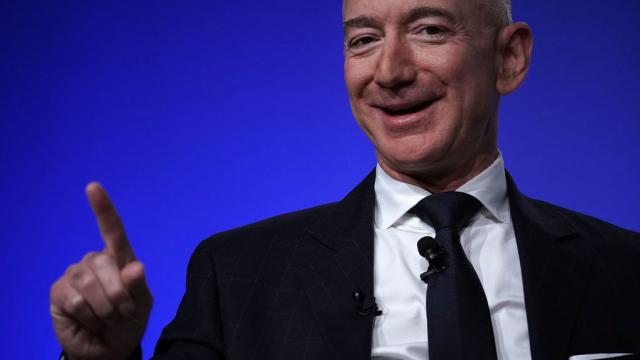When corporations become monolithic, they tend to stalk familiar, doomed territory. The planned communities of the world’s Disneys and Fords are largely out of vogue now, but for tech giants, the white whale is always skywards, in the form of a grandiose universal internet initiative. It’s only surprising that Amazon, in all its splendor, hasn’t gotten in on the action sooner.
Project Kuiper — named after a belt of small objects encircling the Solar System — is an ambitious plan to hoist satellites, around 3,2000 of them, into low Earth orbit at a variety of altitudes in order to supply internet connections to an estimated 95 per cent of the planet.
It was first spotted by Geekwire earlier today, and Amazon later confirmed the project’s existence.
There’s nothing resembling a deadline on Kuiper, beyond the company referring to it as a “long-term project.”
Spacex has already received regulatory approval for around 12,000 satellites intended for its similarly minded Starlink project (none are currently in orbit); two years ago, OneWeb was given the FCC’s OK for 720 satellites, of which six have been launched; last summer Facebook confirmed the existence of Project Athena, its own design several years in the making to fire internet-giving satellites into orbit in early 2019 — which you might notice is now.
Google’s Project Loon—the audacious plan to provide LTE internet to remote regions via a network of hot air balloons—has resulted in numerous crashes and a serious patent infringement suit. Its claims to launch in Kenya by 2019 appear to have been grossly inflated.
Will we have Space Internet some day? Probably. And in all likeliness it’ll be slow, buggy, and—like Facebook’s ill-fated stranglehold on internet availability in the Philippines—further entrench the monopolies of the companies that provide it, and create a whole host of new negative externalities no one is prepared to deal with.
The innate excitement of space exploration is being used to guild an obvious power grab by companies built on unrealistic expansion to into markets for their own far-from-altruistic ends. If you want to be excited about infrastructure, go tell your city council to build more fucking trains.
